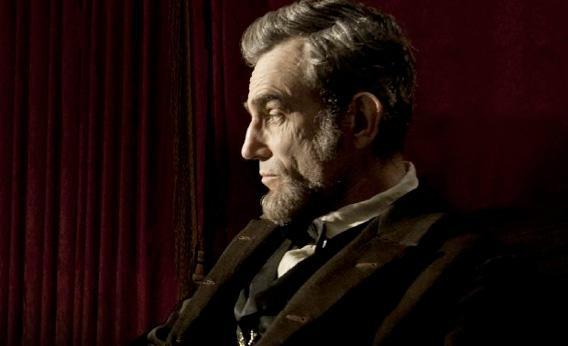This morning, Tony Kushner received a well deserved nomination for best adapted screenplay for Lincoln. The only official source for the movie is Team of Rivals: The Political Genius of Abraham Lincoln; Goodwin receives partial credit for the screenplay. But many readers have pointed out that the film and her book overlap relatively slightly. So where does the rest of the story come from?
Kushner told Dave Davies of NPR that he read approximately 20 books on the subject. But former Slate writer Timothy Noah, now at The New Republic, has suggested that Michael Vorenberg’s 2001 book Final Freedom: The Civil War, the Abolition of Slavery, and the Thirteenth Amendment was likely the major source for Kushner’s script—which, he told me in an email, he considers “superb,” “deeply researched and well-crafted.” When Vorenberg’s book was first published, several reviews praised it as the most comprehensive look to date at the debate and passage of the 13th Amendment, which is the focus of Lincoln. Goodwin’s book, while also widely praised, has a much broader focus, considering the entire Civil War and the policies Lincoln pursued in its course, and dwelling in particular on the lives of Lincoln and his cabinet members (the “team” of the title), as well as their wives.
I emailed Kushner about his research, and he informed me that in the future he plans to create a comprehensive list of the many books and other documents he consulted during his six years of preparation. So as not to leave any names off the list, he declined to provide more details, but he did point out that his historical advisors Harold Holzer and James McPherson are also credited, and their respective books were extremely helpful to him.
What about Final Freedom? Kushner did not mention it specifically, and until he shares his full list of sources, we can only speculate about whether he drew from it. Vorenberg, for his part, takes a good-natured view. “If my book helped add accuracy to the film,” he says, “I can take some pleasure in that.” (Back in November, he took time to answer students’ questions about the film in a chat on Facebook.) He noted that “there was plenty in the film that could only have come from my book,” citing as examples the attempt to bait Thaddeus Stevens into declaring that the amendment would grant blacks equality in all realms (not just under the law) and the manner in which U.S. Congressman Alexander Coffroth was likely persuaded to vote for the amendment’s passage (the “promise of a resolution in his favor in an election controversy”).
Historical films are always likely to draw from a number of sources, Vorenberg added, more than can realistically be given formal credit. “Films don’t have to have footnotes, and it’s hard to imagine how filmmakers could pay everyone who happens to have contributed to knowledge about a particular subject.” For a script as richly detailed and extensively researched as Lincoln, this seems especially true.
